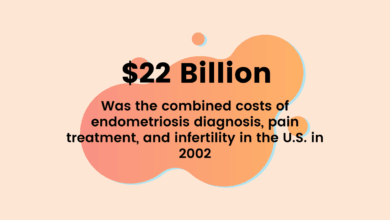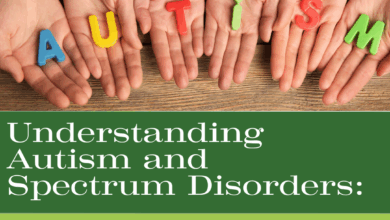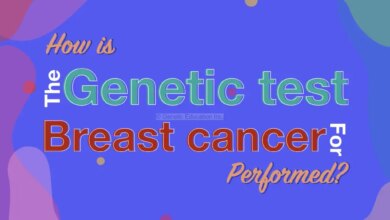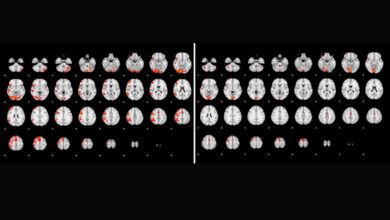
Genetic disorders and autism misdiagnosis is a critical issue with significant implications for individuals and families. This complex topic explores the overlapping symptoms, diagnostic challenges, and potential consequences of misidentifying genetic disorders as autism spectrum disorder (ASD). Understanding the intricacies of these conditions is paramount for accurate diagnoses and appropriate interventions. This deep dive will illuminate the intricacies of these conditions, guiding readers towards a better understanding.
The diagnostic process often faces obstacles due to the subtle yet significant overlap between the symptoms of genetic disorders and ASD. Clinicians must carefully evaluate various factors to differentiate between these conditions. This exploration highlights the importance of genetic testing in providing a more precise diagnosis and navigating the complexities of these conditions.
Introduction to Genetic Disorders and Autism Misdiagnosis
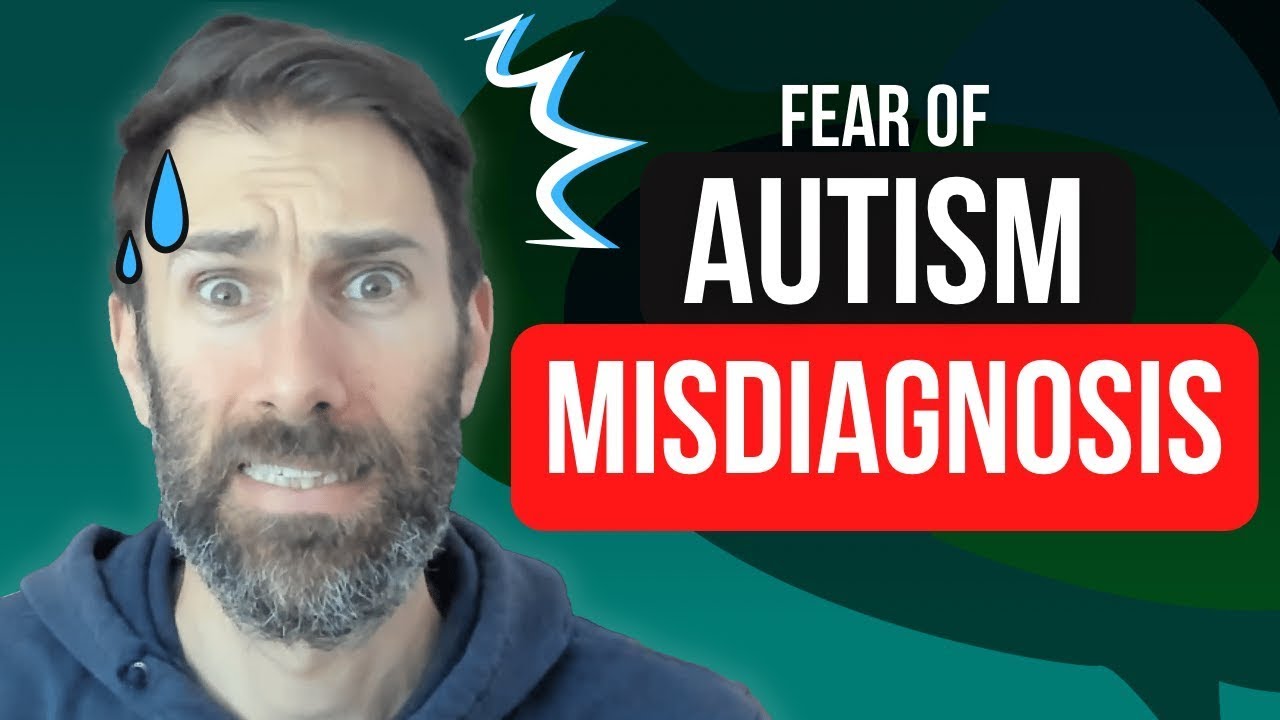
Navigating the world of developmental disorders can be incredibly challenging, especially when trying to understand the nuances of conditions like autism spectrum disorder (ASD) and genetic disorders. A significant hurdle in diagnosis lies in the potential for overlap and shared symptoms, making accurate identification a complex process. This can lead to misdiagnosis, potentially delaying appropriate interventions and impacting the individual’s well-being and future.The interplay between genetic predispositions and environmental factors plays a crucial role in the development of both autism and genetic disorders.
Genetic variations can influence the likelihood of developing a specific disorder, while environmental influences can act as triggers or modulators. Furthermore, the varying degrees and presentations of symptoms within each condition contribute to the diagnostic complexities.
Defining Genetic Disorders and Autism Spectrum Disorder
Genetic disorders are conditions arising from alterations in an individual’s genetic material. These alterations can range from single gene mutations to complex chromosomal abnormalities. Such mutations can lead to a wide array of physical and intellectual impairments. Autism Spectrum Disorder (ASD) is a neurodevelopmental condition characterized by persistent challenges in social communication and interaction, along with restricted, repetitive patterns of behavior, interests, or activities.
The spectrum nature of ASD emphasizes the diverse range of presentations and severities in individuals with the condition.
Symptoms Overlap Between Genetic Disorders and ASD
Many genetic disorders exhibit symptoms that overlap with ASD. This overlap arises from the shared impact on brain development and function. For example, difficulties with social interaction, communication, and repetitive behaviors are common features in both categories. The specific expression of these symptoms can vary widely across individuals, even within the same genetic disorder.
Common Genetic Disorders Potentially Misdiagnosed as ASD
The following table Artikels some genetic disorders that might be misdiagnosed as ASD due to symptom overlap. It is crucial to remember that this table is not exhaustive and that a thorough clinical evaluation is essential for accurate diagnosis.
| Disorder | Symptoms Potentially Overlapping with ASD | Distinguishing Features |
|---|---|---|
| Fragile X Syndrome | Social communication difficulties, repetitive behaviors, intellectual disability, anxiety, hyperactivity, sensory sensitivities | Characteristic facial features, developmental delays, specific cognitive profiles, often associated with FMR1 gene mutation |
| Rett Syndrome | Loss of acquired skills, stereotyped hand movements, communication difficulties, intellectual disability | Predominantly affecting females, typically presenting in early childhood, and distinct neurological features |
| Tuberous Sclerosis Complex (TSC) | Social interaction challenges, anxiety, intellectual disability, epilepsy, unusual behaviors | Presence of characteristic skin lesions, developmental delays, seizures, and the presence of hamartomas in various organs. |
| Down Syndrome | Delayed language development, social challenges, repetitive behaviors, intellectual disability, hypotonia | Characteristic facial features, specific physical characteristics, and distinct patterns of intellectual disability. |
Diagnostic Challenges and Misinterpretations
The journey to a precise diagnosis for individuals with potential genetic disorders or autism spectrum disorder (ASD) can be fraught with complexities. Clinicians face unique challenges in differentiating these conditions, often relying on observations, behavioral assessments, and medical history. Misinterpretations and biases can further complicate the process, leading to delayed or incorrect diagnoses. Understanding these challenges is crucial for fostering a more accurate and compassionate approach to patient care.Clinicians often struggle to distinguish between the core features of genetic disorders and the symptoms of ASD.
While exploring genetic disorders and the sometimes-challenging process of autism misdiagnosis, I’ve been pondering the parallels to mental health struggles. It’s fascinating how similar the journey of navigating complex diagnoses can be, and how understanding one area can illuminate another. For example, just as researchers are working to better understand the intricate pathways involved in genetic disorders that contribute to autism, there are parallel efforts to determine if depression remission is truly possible.
This is a vital area of study, and I’d highly recommend exploring more on that front is depression remission possible. Ultimately, these overlapping areas of study highlight the importance of comprehensive and compassionate care for individuals facing these complex conditions.
Both conditions can present with overlapping characteristics, such as developmental delays, communication difficulties, and behavioral challenges. This overlap can lead to diagnostic confusion, especially when dealing with subtle presentations or cases where the severity of symptoms varies. Furthermore, the interplay between genetic predispositions and environmental factors can further complicate the picture.
Challenges in Differentiation
Identifying the specific cause of developmental delays and behavioral issues is often a significant hurdle. The spectrum of genetic disorders is vast, each with its unique set of characteristics. Recognizing these subtle distinctions can be challenging, even for experienced clinicians. Furthermore, genetic disorders can manifest with a wide range of severity, making accurate identification even more complex.
Similarly, ASD presents with diverse symptom profiles, impacting communication, social interaction, and repetitive behaviors differently in individuals.
Common Misinterpretations and Biases
Cultural and societal biases can significantly impact autism diagnosis. These biases may lead to underdiagnosis in certain populations or misinterpretations of behaviors that are culturally or socially conditioned. For instance, a child from a culture where emotional expression is less overt might be perceived as less communicative, leading to an underestimation of their ASD symptoms. Conversely, there may be overdiagnosis in certain groups due to an emphasis on specific behavioral traits.
These biases must be actively addressed to promote equitable and accurate diagnosis.
Role of Genetic Testing in Accurate Diagnosis
Genetic testing has emerged as a valuable tool in the diagnostic process. By identifying specific genetic mutations, testing can pinpoint the cause of a genetic disorder, providing critical insights for treatment and management. This information can also aid in predicting the likelihood of certain conditions in family members. However, genetic testing is not a panacea; its results must be interpreted in conjunction with clinical observations and behavioral assessments.
Not all genetic variations result in diagnosable conditions, and the interpretation of genetic results can be complex and require expertise.
Diagnostic Criteria Comparison
| Feature | Genetic Disorder Diagnosis | Autism Spectrum Disorder Diagnosis |
|---|---|---|
| Defining Characteristics | Specific genetic mutations, abnormalities in chromosome structure or number, or inherited patterns of traits. | Persistent deficits in social communication and interaction, and restricted, repetitive patterns of behavior, interests, or activities. |
| Diagnostic Criteria | Criteria often based on clinical findings, family history, physical examination, and specific genetic testing results. | Criteria based on behavioral observations, standardized assessments, and developmental history. |
| Underlying Mechanisms | Variations in genes or chromosomes. | Complex interplay of genetic and environmental factors. |
| Treatment Approaches | Targeted therapies based on the specific genetic disorder. | Behavioral therapies, educational interventions, and medication for symptom management. |
Impact of Misdiagnosis on Individuals and Families
Misdiagnosis of genetic disorders and autism spectrum disorder (ASD) can have profound and lasting effects on individuals and their families. The delay in receiving accurate diagnoses often leads to missed opportunities for early intervention, impacting development, treatment, and overall well-being. This often results in significant emotional and financial strain for families grappling with the uncertainty and challenges of a complex medical journey.The consequences of misdiagnosis extend far beyond the initial medical encounter.
It creates a cascade of issues that affect every aspect of a child’s life, from their education and social interactions to their mental and physical health. Families are left to navigate a labyrinth of confusing symptoms, unanswered questions, and conflicting opinions, which can be extremely distressing.
Impact on Individuals with Genetic Disorders
Misdiagnosis of genetic disorders often results in inappropriate treatments, delayed access to specialized care, and missed opportunities for early intervention. Children may be subjected to ineffective therapies or interventions that fail to address their specific needs. This can lead to a range of developmental delays, including speech and language impairments, motor skill difficulties, and cognitive challenges. For example, a child with a specific genetic disorder might be misdiagnosed with ADHD or intellectual disability, leading to interventions that don’t address the underlying cause and may even exacerbate symptoms.
Such misdiagnosis also hinders the child’s ability to access crucial support systems, hindering their full potential.
It’s frustrating how often genetic disorders get misdiagnosed, especially when it comes to autism. Sometimes, subtle neurological differences can be mistaken for other conditions. This is a real problem, as early intervention is key. Consider this: even moderate drinking can shrink brain over time, potentially impacting brain development and function. It highlights the delicate balance of factors that can influence neurological health, further emphasizing the importance of careful and thorough assessments when dealing with potential genetic disorders and autism misdiagnosis.
Impact on Individuals with ASD
Misdiagnosis of ASD can significantly impact a child’s development and social-emotional well-being. Children may be misdiagnosed with other conditions like anxiety disorders, behavioral problems, or even learning disabilities. This can lead to delayed access to specialized therapies like speech therapy, occupational therapy, and behavioral interventions. These delays can exacerbate existing difficulties and create a sense of isolation and frustration for the child.
For instance, a child with ASD might be labeled as defiant or inattentive, hindering their access to support tailored to their unique needs.
Impact on Families
The emotional toll of misdiagnosis on families is substantial. Families may experience feelings of frustration, anger, and despair as they navigate the complexities of the diagnostic process. The uncertainty and lack of clarity can create significant stress and anxiety, impacting their overall well-being. Financial burdens associated with multiple tests, specialists, and treatments can also be significant, placing further strain on families.
For instance, families might spend years and substantial amounts of money on therapies and interventions that are not addressing the underlying cause of the child’s difficulties.
Treatment Planning and Support Services
Misdiagnosis can significantly disrupt treatment planning and access to support services. Appropriate interventions are often delayed or entirely missed, resulting in a failure to address the core issues and create meaningful progress. The lack of tailored support can hinder the development of coping mechanisms, social skills, and educational strategies, negatively impacting long-term outcomes. For example, if a child with a genetic disorder is misdiagnosed with behavioral problems, the treatment plan will likely focus on behavioral modification rather than the underlying genetic condition, potentially hindering their development.
Examples of Delayed Intervention
Misdiagnosis can lead to significant delays in appropriate intervention. A child with a rare genetic disorder might be initially misdiagnosed with developmental delays, leading to interventions focused on general developmental milestones rather than addressing the specific needs of the disorder. Similarly, a child with ASD might be misdiagnosed with ADHD, leading to interventions focused on attention and impulse control rather than specialized interventions tailored to address communication, social interaction, and repetitive behaviors.
These delays can have long-lasting consequences for the child’s overall development and well-being.
Potential Consequences of Misdiagnosis
| Aspect | Impact on Individuals | Impact on Families |
|---|---|---|
| Delayed diagnosis | Missed opportunities for early intervention, developmental delays, and difficulties in acquiring essential skills. | Increased stress, anxiety, and financial burden associated with multiple tests and treatments that don’t address the root cause. |
| Inappropriate treatments | Ineffective interventions that fail to address the underlying condition, potentially worsening symptoms. | Disappointment and frustration stemming from ineffective treatments and the feeling of helplessness in navigating the medical system. |
| Missed support services | Lack of access to specialized therapies and support groups tailored to their specific needs. | Limited access to resources and information about the condition, leading to isolation and difficulty in advocating for their child’s needs. |
Advancements in Genetic Testing and Diagnosis
Recent breakthroughs in genetic testing technologies are revolutionizing the way we understand and diagnose genetic disorders, including those associated with autism spectrum disorder (ASD). These advancements are not only improving diagnostic accuracy but also providing crucial insights into potential treatment strategies, offering hope for more targeted and effective interventions. This shift in approach is crucial for families facing the challenges of misdiagnosis and the need for precise, early interventions.The accuracy of diagnosing genetic disorders is significantly enhanced by the development of sophisticated genetic testing methods.
These methods can pinpoint specific gene mutations or chromosomal abnormalities that might be linked to a particular disorder, offering a more definitive answer compared to traditional diagnostic approaches. This increased precision minimizes the possibility of misdiagnosis and allows for earlier intervention, potentially leading to better outcomes for individuals with genetic disorders.
Recent Genetic Testing Technologies
Advanced genetic testing technologies are now capable of analyzing an individual’s entire genome (whole-genome sequencing) or specific regions of interest (targeted sequencing). These methods are more comprehensive than traditional karyotyping, which primarily examines chromosomes. Whole-genome sequencing, for example, provides a complete picture of an individual’s genetic makeup, enabling identification of a broader range of potential genetic variations.
Improving Diagnostic Accuracy
The ability to analyze larger portions of the genome and identify subtle variations leads to a greater understanding of complex genetic conditions. This increased resolution in genetic analysis is crucial in distinguishing between conditions that share similar symptoms but have different underlying genetic causes. For example, a child exhibiting developmental delays and autistic traits might have a genetic disorder requiring a different intervention than one with a different underlying genetic etiology.
Genetic Testing and Treatment Strategies
Genetic testing results can significantly inform treatment strategies. By identifying specific gene mutations, clinicians can develop personalized treatment plans that address the root cause of the disorder. For example, if a genetic test reveals a mutation linked to a specific metabolic disorder, dietary interventions and other targeted therapies can be implemented. This personalized approach can lead to more effective management of the disorder and potentially improve long-term outcomes.
Key Genetic Testing Methods for Autism-Associated Genetic Disorders, Genetic disorders and autism misdiagnosis
A number of genetic testing methods are now being employed to identify genetic disorders associated with autism spectrum disorder (ASD). These methods include:
- Whole-exome sequencing (WES): This method focuses on the protein-coding portion of the genome, allowing for the identification of mutations in genes associated with neurodevelopmental disorders, including ASD.
- Whole-genome sequencing (WGS): This technique analyzes the entire human genome, providing a comprehensive view of genetic variations that may be linked to autism spectrum disorder. It has the potential to detect variations that are missed by other methods, making it a valuable tool in the search for causal genes.
- Targeted gene panels: These panels specifically target genes known to be associated with autism and other neurodevelopmental disorders. They can provide a more focused and efficient approach to genetic testing, particularly when a suspected genetic etiology exists.
Examples of Preventing Misdiagnosis
Consider a case where a child exhibits autistic traits and developmental delays. Traditional diagnostic methods might not identify the underlying genetic cause. However, whole-exome sequencing could reveal a specific gene mutation associated with a rare metabolic disorder that mimics autism. This early diagnosis would allow for a tailored treatment approach, potentially preventing the child from experiencing the long-term consequences of misdiagnosis and delayed intervention.Another example could involve a child displaying repetitive behaviors and communication challenges, potentially indicative of an ASD.
Targeted sequencing of genes associated with neurodevelopmental disorders might reveal a specific genetic variation, leading to a more accurate diagnosis and appropriate support strategies.
Role of Early Intervention and Support

Early intervention plays a crucial role in maximizing the potential of individuals with genetic disorders or autism spectrum disorder (ASD). By providing timely support and resources, families and professionals can address developmental delays, enhance communication skills, and foster independence. Early intervention often involves a multidisciplinary approach, tailored to the specific needs of each individual.Early intervention is a critical component of effective management for individuals with genetic disorders or ASD.
It is a dynamic process that adapts to the evolving needs of the child. This proactive approach allows for early identification of potential challenges, enabling the development of personalized strategies to address these challenges. The sooner interventions are initiated, the greater the likelihood of positive outcomes.
Early Intervention Programs
Early intervention programs are designed to provide comprehensive support to children with genetic disorders or ASD from a young age. These programs typically include therapies tailored to the specific needs of the child. For example, occupational therapy may help develop fine motor skills, while speech therapy focuses on improving communication. Physical therapy can address gross motor skills and sensory processing challenges.
These interventions are frequently delivered in a variety of settings, including the home, clinic, and community centers.Examples of early intervention programs include:
- Early Start Denver Model (ESDM): This evidence-based approach focuses on building relationships and using play-based interactions to support communication, social interaction, and cognitive development in young children with ASD. It involves parents and other caregivers in the therapeutic process. ESDM is often implemented by specially trained therapists.
- Individualized Education Programs (IEPs): These programs are designed to provide educational support for children with disabilities. IEPs are developed in collaboration with parents, teachers, and other professionals, outlining specific goals and interventions tailored to the child’s needs. The plan typically includes educational accommodations, therapies, and support services.
- Genetic Counseling and Support Groups: Genetic counselors can provide families with information about the specific genetic disorder, potential outcomes, and available resources. Support groups offer a valuable platform for families to connect with others facing similar challenges, share experiences, and receive emotional support.
Multidisciplinary Teams
A multidisciplinary team approach is essential for effective diagnosis and management of genetic disorders and ASD. This collaborative model brings together professionals with diverse expertise to provide a comprehensive and holistic perspective.The multidisciplinary team typically includes professionals such as:
- Geneticists
- Neurologists
- Pediatricians
- Psychologists
- Speech-language pathologists
- Occupational therapists
- Physical therapists
- Social workers
Each member of the team contributes their unique skills and knowledge to develop a comprehensive understanding of the child’s needs and to create an individualized intervention plan.
Support Services for Families
The impact of a genetic disorder or ASD on a family is significant. Families often require a range of support services to navigate the challenges associated with diagnosis, treatment, and long-term care.
Genetic disorders and autism misdiagnosis are complex issues, often leading to delayed interventions and a frustrating lack of understanding. While studies show that white rich seniors are generally experiencing improved health outcomes, like increased longevity and reduced chronic disease rates, this disparity in healthcare access and outcomes highlights the unequal distribution of resources within the healthcare system. This disparity directly affects diagnosis and treatment for genetic disorders and autism misdiagnosis in marginalized communities, emphasizing the need for further research and equitable healthcare access for all.
white rich seniors getting healthier The disparities are stark, and this needs our attention.
| Service Type | Description | Contact Information |
|---|---|---|
| Genetic Counseling Services | Provides information, testing, and support for individuals and families affected by genetic disorders. | Contact local genetic counseling centers or hospitals. |
| Support Groups for Families | Offer emotional support, practical advice, and connections with other families facing similar challenges. | Search online for support groups specific to the genetic disorder or ASD. |
| Early Intervention Programs | Provide specialized therapies and services to support children with developmental delays or disabilities. | Contact local early intervention agencies or public health departments. |
| Educational Support Services | Provide individualized educational plans and resources for children with special needs. | Contact the child’s school or local education agencies. |
| Financial Assistance Programs | Offer financial support for medical expenses, therapies, and other related costs. | Contact local social service agencies or non-profit organizations. |
Ethical Considerations in Genetic Testing and Diagnosis
Navigating the world of genetic testing and diagnosis requires careful consideration of ethical implications. The power to uncover predispositions to diseases, and even predict future health outcomes, presents a complex array of moral and societal questions. These considerations extend beyond the individual to impact families and the broader community. Transparency and informed consent are paramount in ensuring responsible and ethical application of these powerful tools.
Potential Implications for Individual Privacy and Autonomy
Genetic information is deeply personal and sensitive. The potential for misuse or discrimination based on this information raises serious concerns about individual privacy and autonomy. Individuals may feel pressured to undergo testing, fearing potential stigmatization or discrimination in employment, insurance, or other areas. Maintaining confidentiality and ensuring the secure storage and handling of genetic data are crucial to protecting individual rights.
Ethical Dilemmas Arising from Misdiagnosis
Misdiagnosis in genetic testing, particularly in the context of autism spectrum disorder, can lead to a range of ethical dilemmas. Families may experience emotional distress, financial burdens, and difficulties in accessing appropriate support services if a diagnosis is inaccurate or delayed. Furthermore, misdiagnosis can lead to inappropriate interventions or treatments, impacting the individual’s development and well-being. The responsibility for ensuring accurate and timely diagnosis rests with healthcare professionals, and robust systems for quality control and review are essential.
Guidelines for Ethical Practice in Genetic Counseling and Diagnosis
Ethical conduct in genetic counseling and diagnosis requires adherence to established guidelines and principles. These guidelines emphasize the importance of informed consent, ensuring individuals understand the risks, benefits, and limitations of genetic testing. Counselors must provide unbiased information and support individuals in making informed decisions about testing and management. Additionally, strict confidentiality protocols are essential to protect the privacy of genetic information.
- Informed Consent: Providing comprehensive information about the test, its limitations, potential risks, and benefits to the individual is critical. This ensures that the individual understands the implications of undergoing genetic testing and makes a voluntary decision. Documentation of this consent process is crucial for legal and ethical reasons.
- Confidentiality and Privacy: Protecting the privacy of genetic information is paramount. Strict protocols must be in place for data storage, access, and sharing. This includes adhering to regulations like HIPAA in the US and equivalent regulations globally.
- Non-Discrimination: Genetic information should not be used to discriminate against individuals in employment, insurance, or other areas. Policies and laws must be in place to prevent such discrimination.
- Addressing Potential for Misdiagnosis: Establishing clear protocols for quality control, validation of test results, and review of diagnoses is crucial. A multidisciplinary approach, involving specialists in genetics, clinical psychology, and other relevant fields, can help to minimize the risk of misdiagnosis.
- Providing Emotional Support: Genetic counseling should include a component focused on emotional support and coping mechanisms. Individuals and families facing the prospect of genetic disorders need compassionate and empathetic support to navigate the challenges of diagnosis and potential treatment.
Illustrative Case Studies of Misdiagnosis: Genetic Disorders And Autism Misdiagnosis
Understanding the complexities of misdiagnosis in genetic disorders and autism is crucial. These conditions often present with overlapping symptoms, making accurate identification challenging. Consequently, misdiagnosis can lead to significant delays in appropriate interventions, impacting the individual’s development and well-being. The following case studies illustrate these complexities.
Case Study 1: A Child with Delayed Development
A three-year-old named Lily presented with significant delays in speech and motor skills. She also exhibited unusual sensory sensitivities, such as avoiding bright lights and loud noises. Initial evaluations focused on developmental delays, leading to a diagnosis of Global Developmental Delay. However, Lily’s parents noted subtle facial features and unusual muscle tone. A genetic counselor suggested genetic testing, particularly for conditions associated with intellectual disability and autism spectrum disorder.
Genetic testing revealed a rare chromosomal abnormality linked to intellectual disability and specific sensory processing differences.
Genetic testing allowed for a more precise diagnosis, enabling tailored interventions focused on Lily’s specific needs. Early intervention programs targeting speech therapy, occupational therapy, and specialized education were implemented.
The impact of the misdiagnosis was significant. Lily received therapies that did not address her underlying condition, delaying progress. The accurate diagnosis, however, led to effective interventions and improvements in her development.
Case Study 2: A Teenager with Behavioral Challenges
A 15-year-old named Ethan presented with behavioral challenges, including difficulty focusing in school, social withdrawal, and repetitive behaviors. Initial assessments focused on behavioral issues, leading to a diagnosis of Oppositional Defiant Disorder (ODD). Ethan’s parents, however, noticed subtle physical characteristics, such as unusual facial features and an unusually high-pitched voice. A genetic counselor suggested genetic testing, particularly for conditions associated with neurodevelopmental disorders.
Genetic testing revealed a rare genetic mutation impacting neurotransmitter function. This mutation is associated with a specific type of autism spectrum disorder with significant behavioral and communication challenges.
The misdiagnosis of ODD had significant consequences. Ethan received behavioral therapies that did not address the underlying neurological cause of his challenges. The accurate diagnosis allowed for targeted therapies and support groups, helping Ethan better understand and manage his condition.
Case Study 3: A Young Adult with Chronic Pain
A 22-year-old named Maya experienced chronic pain and fatigue. Initial assessments focused on possible physical ailments. After years of misdiagnosis, she was eventually diagnosed with a rare genetic disorder associated with chronic pain and fatigue. The misdiagnosis significantly impacted Maya’s life, leading to a prolonged period of ineffective treatment and lost opportunities.
Genetic testing identified a specific gene mutation, confirming the diagnosis. This enabled personalized treatment strategies targeting the underlying genetic cause of her condition.
The impact of misdiagnosis was profound, affecting Maya’s quality of life, relationships, and career prospects. The correct diagnosis led to appropriate medical management, allowing her to lead a more fulfilling life.
Summary Table
| Case Study | Symptoms Observed | Potential Underlying Genetic Disorder | Impact of Misdiagnosis |
|---|---|---|---|
| Case Study 1 (Lily) | Delayed speech, motor skills, sensory sensitivities | Rare chromosomal abnormality | Delayed progress in intervention, ineffective therapies |
| Case Study 2 (Ethan) | Behavioral challenges, difficulty focusing, social withdrawal, repetitive behaviors | Rare genetic mutation associated with autism spectrum disorder | Ineffective behavioral therapies, delayed access to appropriate support |
| Case Study 3 (Maya) | Chronic pain, fatigue | Rare genetic disorder | Prolonged ineffective treatment, lost opportunities |
Closing Summary
In conclusion, the complexities of genetic disorders and autism misdiagnosis underscore the importance of accurate diagnosis and early intervention. Advancements in genetic testing offer promising avenues for improved precision in diagnosis, enabling tailored treatment strategies. Ultimately, a multidisciplinary approach involving clinicians, genetic counselors, and support systems is crucial for ensuring the best possible outcomes for individuals and families affected by these conditions.
The potential for misdiagnosis highlights the need for ongoing research and awareness campaigns.
